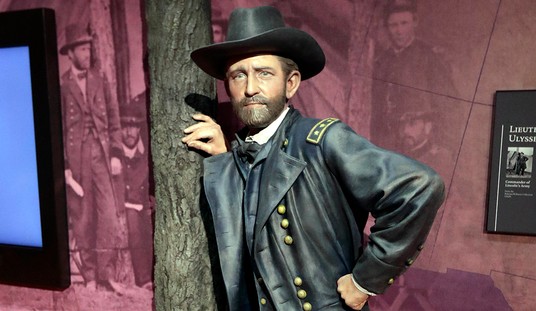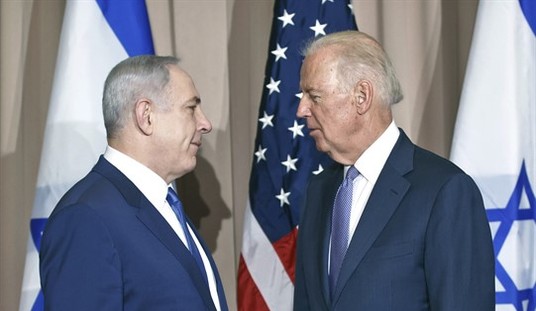It’s over for President Obama’s plan to launch a “limited but decisive” strike on Syria. The Washington Post reports, “Prime Minister David Cameron lost a preliminary vote in Parliament late Thursday on intervention in Syria. … The British parliamentary vote marked a stunning defeat for Cameron’s government.”
The Wall Street Journal explains, “Thursday evening’s vote was nonbinding, but in practice the rejection of military strikes means Mr. Cameron’s hands are tied. In a terse statement to Parliament, Mr. Cameron said it was clear to him that the British people did not want to see military action.”
This followed the rejection in the UN Security Council of a resolution authorizing the use of force in Syria; there is no hope that it will ever be passed. “After the council fell short of reaching an agreement, State Department deputy spokeswoman Marie Harf told reporters in Washington that the U.S. sees ‘no avenue forward’ given Russia’s past opposition to action by the council on Syria.”
The Obama administration was prepared to go forward without NATO approval either, a sign that it believed support in those quarters was scant as well. Defense One reported that “with its military ready to attack Syria on President Obama’s command, the United States is no longer pursuing a United Nations or NATO stamp of approval to respond with force to the purported deployment of chemical weapons.”
Neither has Obama secured the consent of Congress for his planned operation. Speaker John Boehner wrote to the president, saying: “I have conferred with the chairmen of the national security committees who have received initial outreach from senior Administration officials, and while the outreach has been appreciated, it is apparent from the questions above that the outreach has, to date, not reached the level of substantive consultation.” Boehner wrote:
I respectfully request that you, as our country’s commander-in-chief, personally make the case to the American people and Congress for how potential military action will secure American national security interests, preserve America’s credibility, deter the future use of chemical weapons, and, critically, be a part of our broader policy and strategy. In addition, it is essential you address on what basis any use of force would be legally justified and how the justification comports with the exclusive authority of Congressional authorization under Article I of the Constitution.
Jack Goldsmith, the Henry L. Shattuck Professor at Harvard Law School, examines the legal authority under which presidents can order a military action without the authorization of Congress. He noted that the previous presidents invoked treaty obligations and national interest considerations notably absent in this case.
What is the important national interest in intervening in Syria? No U.S. persons or property are at stake. That fact alone distinguishes most executive branch precedents. In the Libya opinion, OLC argued that the “credibility and effectiveness” of a Security Council Resolution gives rise to an important national security interest. This is a stretch considered by itself – but in any event, there is no Security Council resolution for Syria. Nor can OLC even invoke the “credibility and effectiveness” of a regional organization in which the USG participates (such as NATO, in Kosovo) as giving rise to an important interest that would justify the President’s use of military force. That leaves the weakest of all interests: preservation of “regional stability” and maintenance of “peace and stability.” These interests will of course always be present when the President is considering intervention, and thus by themselves are no limit on presidential power at all. Such interests were invoked in Libya and in earlier OLC opinions, but they were always invoked in connection with other factors (such as the consent of the nation in question) or other interests (such as the protection of U.S. persons or property, or the preservation of the U.N. Charter or a regional security treaty commitment), and never as sufficient by themselves.
Now, with Britain out of the operation, Obama faces the prospect of going into Syria almost literally alone, without the UN, NATO, Congress, or even the UK to back him up. Two courses are now open to him. He can climb down as best he can and pretend he’s changed his mind or he can go forward risking a wider war for nothing. As Andy Borowitz of The New Yorker said in a satirical piece, Obama has tried to mollify the antiwar left by promising the Syria strike “would have no objective.” It would just be a couple of days worth of random drive-by shooting without strategic content and therefore moral.
Yet a climbdown would represent a public and devastating humiliation of the man who once believe he bestrode the world. It would also represent a huge propaganda victory for Assad.
The alternative would be for Obama to double down and order an attack on his own authority despite having, as Professor Goldsmith noted, no apparent legal leg to stand on. He would risk starting a wider war that he doesn’t even want to win, and possibly illegally to boot.
Whichever way it goes, Obama’s plan for a “limited but decisive” attack on Assad is probably over. George Will advised the president to quit talking himself into trouble. “The administration now would do well to do something that the head of it has an irresistible urge not to do: Stop talking. If a fourth military intervention is coming, it will not be to decisively alter events, which we cannot do, in a nation vital to U.S. interests, which Syria is not. Rather, its purpose will be to rescue Obama from his words.”
The bigger question is whether Obama himself is now over. There was a brief scare yesterday following reports that the Egyptian government was planning to close the Suez Canal to U.S. warships, in the event the Truman battle group passed through. That is what things have come to. But the narrative was prepared for hard and heavy tidings. Michael O’Hanlon wrote a possibly prophylactic piece in the Washington Post asking, “Who needs the Suez Canal?” This follows earlier pieces that said, “Who needs Egypt?”
Yet how long before everyone starts to ask themselves a more fundamental question: who needs Obama? It is too early to tell how damaged he has become with this, his latest debacle. But it is not inconceivable that the British rejection will mark the end — or the beginning of the end — of Barack Obama’s presidency.
The most disturbing aspect of the Syria episode was that it wasn’t Boehner’s token resistance but the cumulative refusal of other sovereigns to go along that derailed the plan. Washington left to its own devices would have failed; it would have walked off the cliff. But reality worked, which is a bad sign really, since the Constitution is supposed to trap exceptions like this before they become actual physical problems.
It was the cumulative strategic effect of Obama’s blunders that provided an almost palpable pushback. That can’t hide the fact that the error handlers didn’t work. Congress was supine. The media was complicit to the end; and it required an actual debacle — a system crash — to alert the somnolent administrators to the problem. An E-bomb had to go off right in front of them to shake them awake. That is a huge worry because it suggests that while the Syria operation may be dead, so indeed is Washington.
Did you know that you can purchase some of these books and pamphlets by Richard Fernandez and share them with you friends? They will receive a link in their email and it will automatically give them access to a Kindle reader on their smartphone, computer or even as a web-readable document.
The War of the Words for $3.99, Understanding the crisis of the early 21st century in terms of information corruption in the financial, security and political spheres
Rebranding Christianity for $3.99, or why the truth shall make you free
The Three Conjectures at Amazon Kindle for $1.99, reflections on terrorism and the nuclear age
Storming the Castle at Amazon Kindle for $3.99, why government should get small
No Way In at Amazon Kindle $8.95, print $9.99. Fiction. A flight into peril, flashbacks to underground action.
Storm Over the South China Sea $0.99, how China is restarting history in the Pacific
Tip Jar or Subscribe or Unsubscribe









Join the conversation as a VIP Member